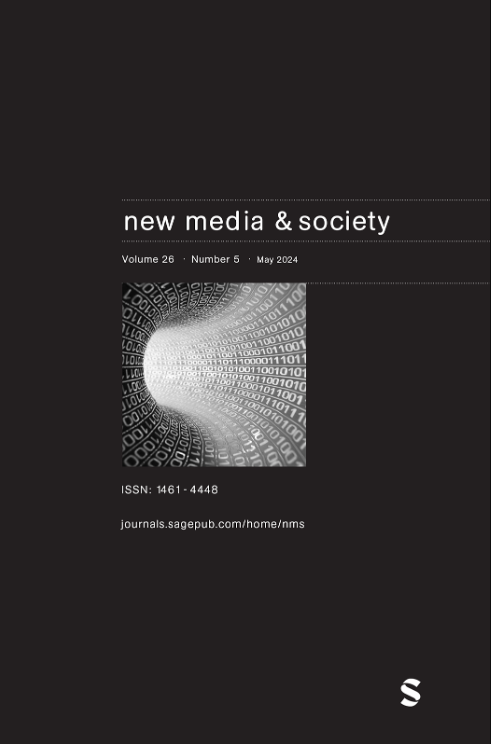“社交互动的能力正在被模型吸收”:人工社交企业中的用户参与和数据资产化
IF 4.3
1区 文学
Q1 COMMUNICATION
引用次数: 0
摘要
由韩国初创公司ScatterLab开发的Luda Lee是一款人工智能社交聊天机器人,旨在体现一个20岁的年轻女大学生的角色,并被宣传为“你的第一个人工智能朋友”。由于“2021年的鹿大1.0”被用户滥用、语言数据的不正当来源等争议不断,“鹿大1.0”于2021年被暂停运营一年之后,“ScatterLab”最近重新推出了“生成式人工智能鹿大2.0”,并致力于扩大“软件即服务”(saas)的运营。这篇文章追溯了Luda和ScatterLab的发展历程,强调了用户参与在公司“专有数据集”的制作和再利用过程中的关键作用。它探讨了用户参与如何不仅是一个目标,而且是人工社会化企业企业发展的战略。鼓励用户参与的策略,比如聊天机器人的性别设计,会创造出意想不到的用户参与和用户生成的数据。这些数据被认为是吸收人工智能能力的材料,被构建为公司未来承诺的资产、材料和话语锚。本文章由计算机程序翻译,如有差异,请以英文原文为准。
“Capacities for social interactions are just being absorbed by the model”: User engagement and assetization of data in the artificial sociality enterprise
Developed by a Korean start-up called ScatterLab, Luda Lee is an AI-powered social chatbot designed to embody the persona of a 20-year-old, youthful college girl and promoted as “your first AI friend.” A year after the suspension of Luda 1.0 in 2021 amid a heated controversy surrounding Luda 1.0 in 2021 regarding user-initiated abuse and the unethical sourcing of language data, ScatterLab recently reintroduced a generative AI-powered Luda 2.0 to the public, while pursuing the expansion of its operation as a software-as-a-service provider. The article traces the evolution of both Luda and ScatterLab, highlighting the crucial role of user engagement in the making and repurposing of the company’s “proprietary dataset.” It explores how user engagement is not only an objective but also a strategy for corporate growth in the artificial sociality enterprise. Strategies to encourage user engagement, like gendering of the chatbot design, create unanticipated kinds of user engagements and user-generated data. Those data, conceived as materials from which the AI’s competence is absorbed, is constructed as an asset, a material and discursive anchor for the company’s future promises.
求助全文
通过发布文献求助,成功后即可免费获取论文全文。
去求助
来源期刊

New Media & Society
COMMUNICATION-
CiteScore
12.70
自引率
8.00%
发文量
274
期刊介绍:
New Media & Society engages in critical discussions of the key issues arising from the scale and speed of new media development, drawing on a wide range of disciplinary perspectives and on both theoretical and empirical research. The journal includes contributions on: -the individual and the social, the cultural and the political dimensions of new media -the global and local dimensions of the relationship between media and social change -contemporary as well as historical developments -the implications and impacts of, as well as the determinants and obstacles to, media change the relationship between theory, policy and practice.
 求助内容:
求助内容: 应助结果提醒方式:
应助结果提醒方式:


